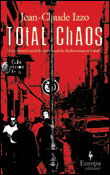
 It all starts with murder. Since Dashiell Hammett took the crime story out of the drawing room and into the street, mystery has ceased to be the meat of the story. Hammett used his crime fiction as a magnifying glass to examine capitalism’s toll on America. Sometimes he found his perp in that lens, but it was less about whodunit and more about who had the power and money to do what he or she wanted.
It all starts with murder. Since Dashiell Hammett took the crime story out of the drawing room and into the street, mystery has ceased to be the meat of the story. Hammett used his crime fiction as a magnifying glass to examine capitalism’s toll on America. Sometimes he found his perp in that lens, but it was less about whodunit and more about who had the power and money to do what he or she wanted.
Crime fiction in Italy and France today has become as prevalent as it was in the US in Hammett’s heyday. The “Mediterranean noir” novel also acts as a lens, trained on European political and social structures. The best of it is making its way to the United States via publishing houses such as Europa Editions and the New York Review of Books Classics series.
American noir was peopled with hoods, hard blondes and the rich husbands who owned them, and all the yeggs in yeggdom. Mediterranean noir portrays a Europe where the detritus of postwar, post-Soviet, and post-colonial society drifts across the continent, battling, exploiting, ripping off, and killing one another. Spanish anarchists, Albanian lap dancers, Croatian war criminals, Romanian whores, Moroccan drug dealers — it’s not so much that they have a price, it’s that they have no place.
Massimo Carlotto’s hard-boiled thriller, The Goodbye Kiss (Europa; originally published in 2000), begins, of course, with murder, specifically a “double-crossing execution.” Pelligrini, a former Italian leftist revolutionary and self-proclaimed “prick filled with delusions of grandeur,” has been on the run ever since he killed a man. Sentenced to life in absentia, he makes a run for it — to Central America, where he plays at being a revolutionary. When Pelligrini has had enough of the brutal life of the jungle guerrilla, which makes his militant activities in Milano seem like a game, he decides to return home. He shoots his only friend in the back and heads for Italy. Thus begins Pelligrini’s mission to erase his past.
Pelligrini wants to be an ordinary guy — “like everybody else . . . just a face in the crowd” — but he can’t untangle himself from the criminal life. Fractured Europe’s displaced millions provide him with an endless supply of accomplices. Neo-Nazis, latter-day Leninists, every asshole holding a grudge over the loss of a beloved country that was autonomous for five minutes in the 16th century — Pelligrini uses them all. Each new scenario that holds the promise of bringing him the money he needs to be free comes with a new set of problems. And the only solution he can see is to kill everyone and start again. The Goodbye Kiss is not for the squeamish. The body count is high, the nihilism quotient higher.